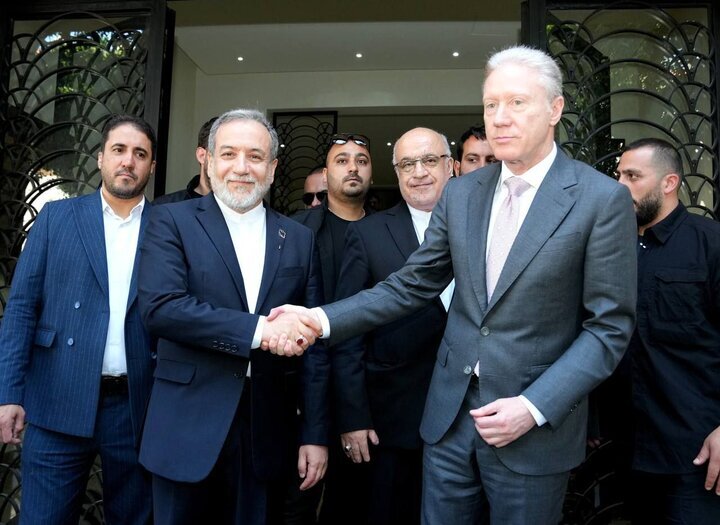Araghchi’s visit to Beirut: Constructive despite Lebanese Forces minister’s impudence

BEIRUT— Various observers and analysts have rated the Iranian Foreign Minister Abbas Araghchi’s visit to Beirut on June 3 as positive and constructive.
Araghchi’s visit reflected Tehran’s seriousness in strengthening its bilateral relations with Lebanese President Joseph Aoun, its support for the official position rejecting the Israeli occupation of some Lebanese territories, and its support for the Lebanese government’s efforts to rebuild what was destroyed during the ongoing U.S.-led Israeli aggression.
Youssef Rajai (Lebanese Forces minister) sparked a wave of loud criticism as he frowned when meeting with the Iranian foreign minister.
Rajai’s bold behavior was considered a blatant violation of Lebanon’s customs regarding the reception of guests, official protocol, and diplomatic norms.
Critics denounced Rajai’s actions, arguing that whatever Rajai’s background and the Lebanese Forces’ positions, such a display should not be tolerated when receiving a foreign envoy to Lebanon, especially since the foreign minister is supposed to represent all of Lebanon, not the political party that brought him into the government.
Rajai, who appeared frowning in the meeting with Araghchi, often greets foreign figures whom the Lebanese Forces party seeks to appease, such as representatives from Washington and Riyadh, with a broad smile.
Foreign Ministry sources leaked reports to the Saudi Al-Hadath channel that Rajai told his Iranian counterpart that “military adventures have not ended the Israeli occupation, but have placed Lebanon in a difficult position.”
An informed source told Tehran Times that Araghchi emphasized to his Lebanese counterpart that diplomacy and international pressure are not enough to achieve the desired result.
According to the source, Araghchi added that “Israel” only understands the rhetoric of force, emphasizing that Hezbollah, as a popular resistance, has demonstrated its effectiveness and the efficacy of its approach in deterring the Israeli enemy all over the past decades.
Besides, Araghchi warned Rajai that Washington and Tel Aviv would not be satisfied with demanding the disarmament of the resistance, but would, if that were achieved, move to demanding the disarmament of the Lebanese army.
This is not Rajai’s first imprudent action, as he began his tenure at the Foreign Ministry by storming the offices of ministry employees in a militia-like manner and threatening them, calling himself a “goat.”
Rajai was also noted for violating diplomatic protocol by accepting the summons of US President Donald Trump’s envoy to West Asia, Morgan Ortagus, to the residence of US Ambassador (High Commissioner) Lisa Johnson, instead of personally attending the State Department, in accordance with official protocol.
In this context, it is worth noting that American sources have circulated that Trump is considering appointing his friend Thomas Barrack as special envoy to Lebanon to replace Ortagus.
Barrack also serves as special envoy to Syria and ambassador to Turkey.
Barrack is one of the businessmen close to Trump; as part of his efforts to reduce the influence of the deep state within US federal institutions, Trump is working to weaken the National Security Council by stripping it of its powers and distributing them among newly created frameworks whose loyalty is guaranteed to him and his “America First” movement, which will harm the Zionist lobby.
Barack had previously been tried after being accused of being an “agent of the UAE,” but was acquitted in court in November 2022. The Senate confirmed his appointment as ambassador to Turkey on April 29, 2025.
Given Rajai’s successive lapses and his ostentatious stances that have damaged Lebanon’s image abroad, political activists are calling for a reconsideration of the appointment of Rajai as Lebanon’s foreign minister, especially as Lebanon is facing a delicate situation that necessitates maintaining relations with friendly countries. This is particularly true after Araghchi expressed the willingness of Iranian companies to participate in the reconstruction process if the government so desires.
Leave a Comment